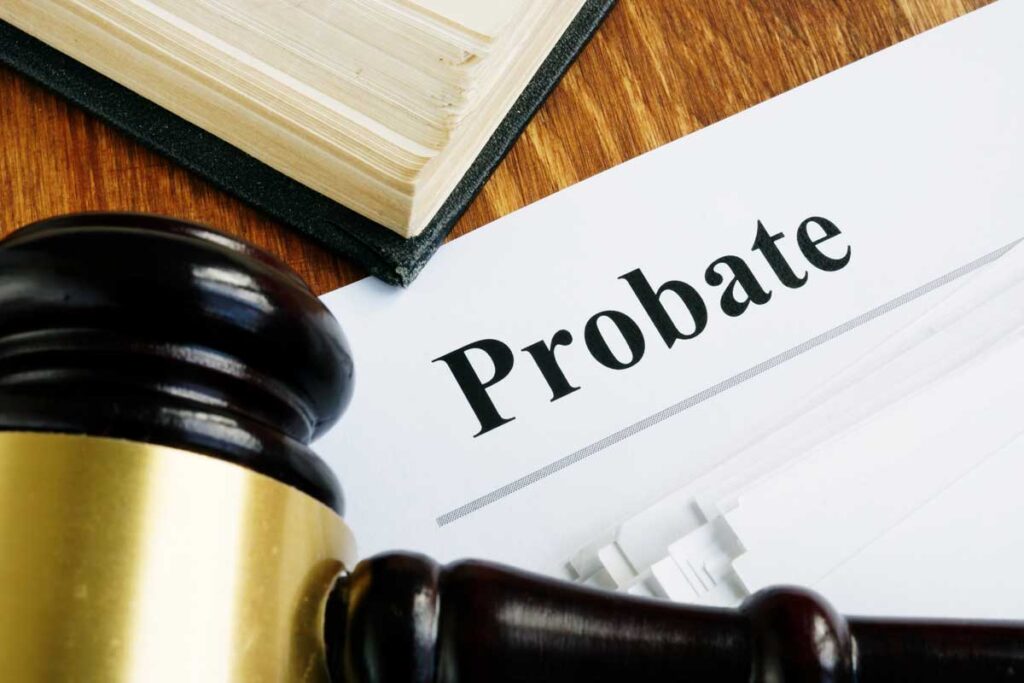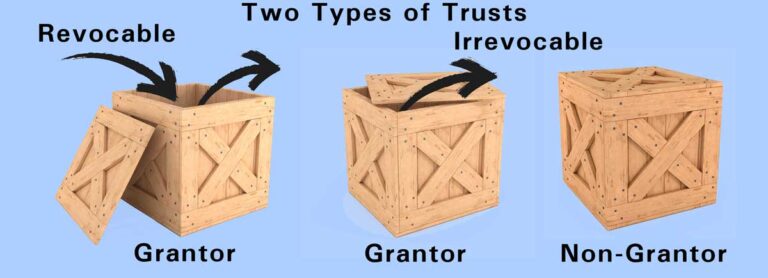Living Trust Arizona
For most, Trusts seem complicated and confusing. Here we’ll break down what a Trust is, answer the questions posed, and give a brief overview of the types of trusts and how they’re best used?
Before answering these questions, let’s cover the terms used in a trust.
First, the individuals who set up a Trust are the Trustor, Grantor, or Settler. These titles are interchangeable; hereafter will be referred to as the Trustor.
The person in control of the assets in a Trust is called the Trustee.
It is the Trustee’s responsibility to protect and maintain the trust assets and to pass them according to the wishes of the Trustor upon their passing. A Trustee can be an individual or corporation or a Corporate Trustee.
With a “living Trust,” the person forming the Trust, the Trustor, and Trustee is usually the same person.
Whereas with an Irrevocable Trust, the Trustor and Trustee are not the same person.
The Trustee must be separate from the Trustor and the Trustor can not control the trust assets.

The Trust Story
Here is a simple-to-understand story that most everyone will find easy to follow.
When, my mom and dad would go out to dinner and entertainment. They would ask “Suzie,” the young college girl from across the street, to babysit for the evening.
Suzie, the babysitter (the Trustee), was entrusted to watch my sister and me (our parent’s assets – The Trust Assets).
Mom would also ask “Suzie’s mother to make sure that “Suzie” was doing everything right and would be there if needed. Her mother was the “Co-Trustee or Trust Protector.”
My mother would put a list of things to do on the refrigerator (The Trust Document) in the event, for whatever reason, my Mom and Dad were in an accident or, worst yet, died and did not return home.
A Trust document instructs someone to carry out your wishes in the event of your incapacity or death.
What is a Living Trust Arizona?
The simple way I describe a Living Trust is this think of it as a box with the lid completely open. You can but your belongings in the box whenever you want and take things out of the box whenever you want.
You retain complete control of the property placed in the Trust; you’re both Trustor of the Trust, the trust maker as well as the Trustee, the person that controls the Trust.

Doesn’t a Trust and a Will do the same thing?
Not quite. A Will must be probated a Trust does not. A Trust eliminates the need for a will, though a properly prepared Living Trust will include a “Pour-Over Will”
A Pour-over Will as a kind of “safety net” just in case you forget to retitle an asset into the name of your Trust. The asset will have to go through probate, but it will be distributed is a according to your Living Trust.
The Successor Trustee of your Living Trust Arizona
Your Trust has a successor trustee that you have named as the Trustor, you also name a guardian, which can be the same person.
The successor trustee is the individual or entity that takes over after your death. If you ever become incapacitated, your “your Guardian can step in and manage trust assets.
That can be extremely helpful in an emergency or in the case of a serious, chronic illness. Your Trust can prevent the court from taking control of your assets if you are incapacitated.
Which can cost $5000 – $10,000 for a loved one o take over your affairs if you do not have a named “Guardian in the event of your incapacity.”
It provides an orderly way to keep track of all you assets under one plan. And unlike a will which becomes a matter of public record at your death, it provides maximum privacy. A Living Trust is difficult to contest, and since you are the Trustee, you maintain complete control, which means it can be changed or canceled at any time.
Keep in mind a Living Trust does not have any income tax advantages, and it does not protect your assets from creditors.
Lastly, since you retain complete control of the assets in the Living Trust. A Living Trust Arizona, “will not” help to qualify for various governmental benefits like Medicaid, Medi-Cal, ALTCS or VA Pension with aid and attendance benefits.
In Fact, not only does a Living Trust not help you qualify for Medicaid or ALTCS in Arizona. Otherwise, non-countable assets, like the primary residence in a Living Trust, become countable and will cause you not to qualify for Medicaid or ALTCS.
Though at the same time, this can be used as an advanced planning tool too. See https://CareFundingSolutions.com for advanced planning strategies.
15 Reasons to have a Living Trust in Arizona
Unlike a Will it avoids Probate.
- Stops the Court from taking control of your assets if incapacitated.
- Organizes your assets for your heirs.
- Provides privacy at death.
- Your estate will pass faster to loved ones.
- You control when your beneficiaries receive their inheritance.
- Can reduce or even eliminate estate taxes.
- Low cost to set up and administer
- You maintain control and you can change or cancel at anytime.
- Very hard to contest
- Minors are protected from court over reach.
- Helps protect children with special needs.
- Prevents unintential disinheriting a loved one.
- Can have a Corporate Trustee manage assets.
- Provides Peace of Mind
Who should have a Living Trust?
If you own titled assets, have minor children, or want to make sure that your loved ones (spouse, children, or parents) avoid the problems of probate at death or incapacity, then you should consider a Living Trust.
Your Senior Parents may want them to consider a Living Trust too. This is so that you won’t have to go through probate upon their death or incapacity.
Is a Living Trust expensive?
Considering the importance of a Living Trust and everything that it does it’s fairly inexpensive compared to the costs and loss of control associated with probate at death and incapacity.
The complexity of your plan will determine your individual cost. Always ask for an estimate in advance.
Doesn’t the asset transfer take a lot of time?
Transferring your assets to the Living Trust will take some time, but this process is easier when you’re alive and unimpaired. Upon death or incapacity without a Trust, many more people must be involved to transfer asset ownership which delays and prolongs distribution to your heirs.
Is transferring assets into my Living Trust difficult?
No. You need to change names on real estate and other titled assets – stocks, CD’s, bonds, bank accounts, etc. Most Living Trusts automatically include your jewelry, clothes, furniture, and other tangible assets that don’t have titles.
Do I lose control of the assts I my Trust?
Absolutely not! You maintain complete control. As Trustee you can do the same things with your assets that you could do with them before they were transferred into the Trust. The only thing that changes is the names on the titles and financial accounts.
Doesn’t joint ownership avoid probate?
No, it usually postpones it. When one owner dies, full ownership of the asset does transfer to the surviving owner without probate. When the surviving owner dies, however, without adding a new joint owner – which may trigger gift taxes – or if both owners die simultaneously, the asset must be probated before it can do to the heirs.
Watch out for other risks. A Co-owner can be sued and cause yo to loose your assets in the process.
And you could even unintentionally disinherit our own family member.
Why would the court get involved with incapacity?
If you become incapacitated, a court will appoint a fiduciary to handle all your financial affairs.
If you have a “Living Trust” in Arizona you name a Guardian to take care of you.
This is expensive, embarrassing, time consuming, and difficult to end if you recover. Then your family must also go through a second probate at your death.
Wouldn’t a Power of Attorney prevent this?
Power of Attroney’ s can only be used while you are alive. So they can’t be used to avoid probate. Many also end at incapacity. A Durable Power of Attorney, however, is valid through incapacity, but it’s risky. It also may not work, if over a certain age since executed some financial institutions won’t honor them or some require you use their forms.
Or it may work too well giving someone a “blank check” to do whatever he/she wants with your assets. A Power of Attorney is very effective with a Living Trust, but risky as a primary estate planning tool.
Is a Living Trust the only document I need?
Although your Living Trust will be at the heart of your estate plan, your estate plan should include at least a Certificate of Trust, Living Will(s), Health Care Powers of Attorney, Durable Power(s) of Attorney, Pour-Over Will(s), and a Community Property Agreement if applicable, and an Assignment of Bill of Sale of personal property.
I have a Will. Why do I need a Trust?
A Will alone is a guaranteed ticket straight to Probate. And if you become incapacitated, it is a ticket to “Living Probate.”
Call us for Free Consultation!

A word on Probate.
When considering a trust, many individuals ask, “I have an Arizona Will; why do I need a Trust?”
The main reason for a Trust is that Wills in Arizona are subject to Probate.
Probate is a public process, and anyone who wants to see your Will can obtain a copy of it, you have no privacy.
The definition of “probate” is “The process of legally establishing the validity of a judicial authority” or “Prove the will.”
When someone only has a Will in Arizona, it forces their heirs to go through the high-cost, time-consuming, public Probate process.
A Trust prevents your loved ones from having to go through the time and expense of Probate.
Probate fees are uniform in 20 states that have adopted the Uniform Probate Code or UPC. Under the UPC attorneys are allowed to charge what is reasonable which forces the bereaved survivors to negotiate with an attorneys what is reasonable.
In Arizona the average cost of Probate is about is about 5% of the total estate.
What is Living Probate?
When someone becomes incapacitated due to an accident or illness, then the process of Guardianship is often called Living Probate.
Living Probate is costly, and the court may not approve the person you want to be your Guardian.
With a Living Trust you name the person you want to act as your Guardian, thereby avoiding the Guardianship process or Living Probate.
What are the Two Types of Trusts?

There are two types of trusts: Revocable and Irrevocable Trust. All Trusts, regardless of their names, fall in one of these two types.
The Revocable or Living Trust and Irrevocable Trusts, have two sub-categories: They are either a Grantor or Non-Grantor type Trust. What makes a trust a Grantor or Non-Grantor is how the Trust Assets are Taxed.
If the income from the Trust is taxed to the Trustor – the person who formed the Trust then it’s a Grantor type Trust. If the Trust has it’s own tax id number, then the Trust is a non-grantor type trust.
A Revocable Trust or Living Trust Arizona is a Grantor Type because any income generated by Trust assets are paid by the person who formed the Trust, the Living Trust Trustor.
Why so many different names for Trust?
Various names have been given to Trust for marketing purposes or making a particular type of Trust sound different from others that are basically the same purpose.
Examples of that are:
A Revocable Trust or Intro-Vivos Trust is referred to as a “Living Trust.” A Revocable Trust is also a Grantor Type Trust.
- Irrevocable Grantor Trust has been called. “An Intentionally Defective Trust.”
- Veterans Asset Protection Trust is a Non-Grantor Trust.
- ALTCS Planning Trust is a Non-Grantor type trust.
- Veterans Residence Trust is a Grantor Type Trust.
I have heard many variations and names but non-change the basic Fact that there are only Two Types of Trust with two categories within those two types.
A Grantor Type Trust can be Revocable or Irrevocable.
What is an Irrevocable Grantor Trust?

Often referred to as an Intentionally Defective Irrevocable Trust or a Medicaid or VA Residence Trust. These names are to identify them, or for marketing purposes only. They are not legal descriptions of the Trust.
The IRS recognized name is a Grantor trust or Irrevocable Grantor Trust.
Like a living trust it eliminates the need for a will, it bypasses Probate and it protects your privacy.
It is important to note that many times individuals will have the need for both a Living Trust as well as an Irrevocable trust, this is because each one serves a different purposes.
First the key feature that distinguishes the irrevocable grantor trust is the way income is handled that the trust assets produces.
Lets explore this feature this way, like a Living Trust where we used a Box with an open lid to describe how you can place assets in the Trust and take them right back out at the whim of the grantor/trustee which is one in the same.
With a grantor trust the box has a lid that is slightly open. Here the assets go in and only income from the Trust can come out.
The income from the Trust whether it is taken out or not is reported on the Grantors income tax return. Under IRS statutes all the income is considered the grantors and is taxed to the Grantor. This is not optional the Grantor receives a 1099 on all income.
This is a great advantage with certain types of assets like a home.
You can place a home in a Grantor type trust and the tax basis in the home is protect and it steps up at death and the $250,000 per person $500,000 per couple is preserved upon the sale of the home.
Again think of the Trust as a box, but with the Irrevocable grantor trust the lid of the Trust is slightly open, the Trust is irrevocable so assets or corpus of the Trust placed in the Trust cannot be taken back out by the Trustor. The Trust assets can be distributed to a Trust beneficiary at the discretion of the Trustee.
At the same time the beneficiary could give the asset back to the Grantor if they so desired to do so.
Once formed and funded it can only be terminated with the consent of your Trustee and all the trust beneficiaries. Which means that an Irrevocable Trust is not necessarily completely irrevocable.
One of the major differences with an Irrevocable Trust over a Revocable Trust is with a Irrevocable Trust the Grantor and Trustee cannot be the same person.
The Non-Grantor Trust

Think of the Non-Grantor Trust as a box with the lid closed. Once you place assets into the Non-Grantor trust. The income and asset stay in the Trust. Then upon your passing the pass to your beneficiaries.
The Trust has it’s own tax id number and Income generated is tax to the Trust or to a Beneficiary if distributed to your beneficiary, not to the Trustor.
This type of Trust avoids Probate and protects assets from lawsuits. Assets in this type of Trust for five years or more they are exempt and no longer counted as assets for ALTCS or Medicaid purposes.
The Trustee should not be a Trust beneficiary.
Common Mistakes Trustees Make
1. Commingling of Trust Funds.
I once saw a trustee use the funds in the Trust to purchase herself a home!
The funds in the Trust were to go to her brother. She was given a portion of the estate at her father’s passing and then as Trustee she was supposed to manage the assets in the interest of her mother. Then when her mother passed the assets where to go to her brother.
She instead bought a home and then when her mother needed long-term care the family did not have the funds to pay for care as planned.
Luckly for her the brother was a kind hearted person and was able to over look the issue and stepped up to provide for his mother.
Keep Assets Owned by the Trust Separate from your own as the Trustee even if you share as a beneficiary.
2. Poor Record Keeping.
It is required to keep good records of all assets in the Trust. Even with a Living Trust where you can put assets into the Trust and Take Assets out of the Trust. You must keep a Log. This log is often called a “Schedule A”.
Arizona Living Trusts do not require a Schedule A, but Living Trusts Arizona do require proper record keeping.
Ask your Trust Preparer (Legal Document Preparer or Attorney) or they offer this service for a fee. We call it an annual review of the Trust and charge a small hourly fee.
3: Giving money to the Grantor directly from the Trust. (this is the most common error made) Solution: The trust language allows you as the Trustee to give money to a living Beneficiary (you) anytime for any reason and for any amount. Do that instead of giving to the Grantor.
4. Not notifying Trust Beneficiaries.
This is required within 60 days of forming an Irrevocable Trust or within 60 days that a Living Trust becomes an Irrevocable Trust. The Trustee must notify the Trust Beneficiaries.
5: Not Following the Trust Direction or Wording in the Trust.
This is a common mistake. Trustees cannot do what ever they want with trust assets.
As the trustee you are legally obligated by the highest standards to follow the wishes of the Trustor.
